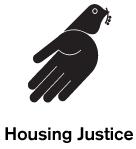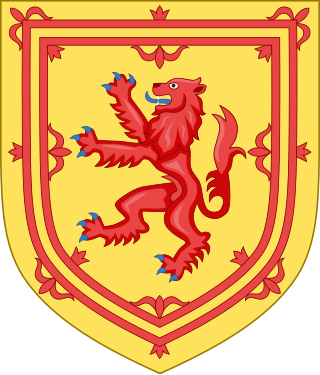Related Research Articles

Methodism, also called the Methodist movement, is a group of historically related denominations of Protestant Christianity whose origins, doctrine and practice derive from the life and teachings of John Wesley. George Whitefield and John's brother Charles Wesley were also significant early leaders in the movement. They were named Methodists for "the methodical way in which they carried out their Christian faith". Methodism originated as a revival movement within the 18th century Church of England and became a separate denomination after Wesley's death. The movement spread throughout the British Empire, the United States, and beyond because of vigorous missionary work, today claiming approximately 80 million adherents worldwide.

The World Council of Churches (WCC) is a worldwide Christian inter-church organization founded in 1948 to work for the cause of ecumenism. Its full members today include the Assyrian Church of the East, the Oriental Orthodox Churches, most jurisdictions of the Eastern Orthodox Church, the Old Catholic Church, the Lutheran churches, the Anglican Communion, the Mennonite churches, the Methodist churches, the Moravian Church, Mar Thoma Syrian Church and the Reformed churches, as well as the Baptist World Alliance and Pentecostal churches. Notably, the Catholic Church is not a full member, although it sends delegates to meetings who have observer status.

The Christian left is a range of Christian political and social movements that largely embrace social justice principles and uphold a social doctrine or social gospel. Given the inherent diversity in international political thought, the term Christian left can have different meanings and applications in different countries. While there is much overlap, the Christian left is distinct from liberal Christianity, meaning not all Christian leftists are liberal Christians and vice versa.
In religious organizations, the laity consists of all members who are not part of the clergy, usually including any non-ordained members of religious orders, e.g. a nun or a lay brother.

The Department for Work and Pensions (DWP) is a United Kingdom government department of His Majesty's Government responsible for welfare, pensions and child maintenance policy. As the UK's biggest public service department it administers the State Pension and a range of working age, disability and ill health benefits to around 20 million claimants and customers. It is the second largest governmental department in terms of employees, and the largest in terms of expenditure (£187bn).

Social policy is a plan or action of government or institutional agencies which aim to improve or reform society.

Religion in the United Kingdom, and in the countries that preceded it, has been dominated for over 1,400 years by various forms of Christianity, replacing Romano-British religions, Celtic and Anglo-Saxon paganism as the primary religion. Religious affiliations of United Kingdom citizens are recorded by regular surveys, the four major ones being the national decennial census, the Labour Force Survey, the British Social Attitudes survey and the European Social Survey.

The Confederation of British Industry(CBI) is a UK business organisation, which in total claims to speak for 190,000 businesses, this is made up of around 1,500 direct members and 188,500 non-members. The non members are represented through the 140 trade associations within the confederation, whose separate and individual memberships the CBI claims to also speak for. Trade Association member companies, are not directly consulted or involved in CBI's policy formulation. The National Farmers' Union with its 55,000 members is the largest component of the 188,500 non-members the CBI claims to speak for. The Country Land and Business association brings another 30,000 non-members, the Association of Independent Professionals and the Self-Employed 20,000 non-members, the Freight Transport Association 13,000, the Federation of Master Builders 9,500, the Road Haulage Association 8,100 and the National Federation of Builders 1,400.
The Methodist Church of Great Britain is a Protestant Christian denomination in Britain, and the mother church to Methodists worldwide. It participates in the World Methodist Council, and the World Council of Churches among other ecumenical associations.
The Methodist Federation for Social Action (MFSA) is an independent network of United Methodist clergy and laity working for justice in the areas of peace, poverty, and people's rights since 1907.

Housing Justice is a charity based in London formed in 2003 when the Catholic Housing Aid Society (CHAS) and the Churches' National Housing Coalition (CNHC) merged. It helps churches use spare land for social housing.

The Convention of Scottish Local Authorities (COSLA) is the national association of Scottish councils and acts as an employers' association for its 32 member authorities.
The British Association for Counselling and Psychotherapy (BACP) is a professional body for counsellors and psychotherapists practising in the United Kingdom.
Ekklesia is a not-for-profit British think tank which examines the role of religion on public life and policy in the UK.
Wildlife and Countryside Link (Link) brings together voluntary organisations in the UK to protect and enhance wildlife, landscape and the marine environment and to further the quiet enjoyment and appreciation of the countryside. Link currently has 49 members who collectively employ 9,600 full-time staff, have the help of 170,000 volunteers and the support of over 8 million people in the UK. Members are united by their common interest in the conservation and enjoyment of the natural and historic environment.

Christian revivalism is increased spiritual interest or renewal in the life of a church congregation or society, with a local, national or global effect. This should be distinguished from the use of the term "revival" to refer to an evangelistic meeting or series of meetings. Proponents view revivals as the restoration of the church itself to a vital and fervent relationship with God after a period of moral decline.
The temperance movement in the United Kingdom was a social movement that campaigned against the recreational use and sale of alcohol, and promoted total abstinence (teetotalism). In the 19th century, high levels of alcohol consumption and drunkenness were seen by social reformers as a danger to society's wellbeing, leading to social issues such as poverty, child neglect, immorality and economic decline. Temperance societies began to be formed in the 1830s to campaign against alcohol. Specific groups were created over periods of time dedicated to the different aspects of drinking. For example, in 1847, the Band of Hope was created to persuade children not to start drinking alcohol. Most of these temperance groups were aimed at the working class. Temperance was also supported by some religious groups, particularly the Nonconformist Churches. Although the temperance movement met with local success in parts of Britain, it failed to impose national prohibition, and disappeared as a significant force following the Second World War.
Blue Collar Conservatives are a pressure group and caucus of Conservative Party Members of Parliament who identify as working class conservatives. It was founded in 2012 by former cabinet minister Esther McVey and a former conservative parliamentary candidate for Workington, Clark Vasey. It was relaunched at the beginning of the 2019 Conservative Party leadership election by Esther McVey, Ben Bradley, the MP for Mansfield since 2017, and Scott Mann, the MP for North Cornwall since 2015. The relaunch was reported to have rivalled the recent establishment of the One Nation Conservatives.
References
- ↑ Church of Scotland (2015), Church enters partnership on public issues
- ↑ "Joint Public Issues Team - Live out the gospel of Christ in church and society". www.jointpublicissues.org.uk.
- ↑ JPIT, Rachel Lampard, accessed 25 November 2022
- ↑ "Roger Walton & Rachel Lampard elected as Methodist President & Vice-President for 2016/17". www.methodist.org.uk.